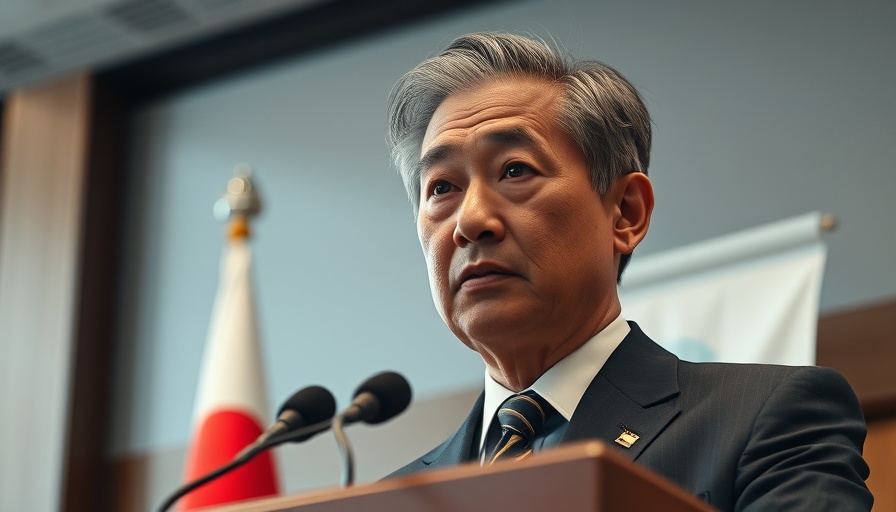
Japan's Political Landscape Shattered: Ishiba's Planned Departure
In what could be a pivotal moment in Japanese politics, Prime Minister Shigeru Ishiba is reportedly set to announce his resignation following a notable election defeat that stripped his administration of its upper house majority. The news, highlighted by local media, underscores the precarious state of governance in Japan, particularly as Ishiba's tenure, which began less than a year ago, faces mounting pressures from both political opponents within and challenges from newly emerging parties on the right.
The Fallout from the Election Drubbing
The recent electoral loss for Ishiba, along with his Liberal Democratic Party (LDP), indicates a troubling trend for traditional political powerhouses in Japan. Ishiba's promise to pursue a new trade agreement with the United States was seen as a silver lining. However, the reality is grim; the aftermath of the elections suggests a growing discontent among the electorate, which may be nudging them towards other parties. This pressure may contribute to a deeper shift in Japan’s political landscape as the public re-evaluates their party loyalties and expectations.
Examining Economic Pressures: The Trade Deal Dilemma
Ishiba’s gamble on the trade deal with the U.S. lowers tariffs on Japanese automotive imports, intended to bolster Japan's struggling economy. But will it be enough? Following the election results, Ishiba acknowledged that he’d need to examine the deal’s outcomes closely before determining his next steps, leaving room for vulnerability. Many observers now ponder whether the trade agreement can revive his standing with Japan's voters or whether it will simply postpone inevitable changes within the political sphere.
What This Means for the Future of Japanese Leadership
With Ishiba's resignation looming, conversations around succession have already begun. Political analysts are keenly observing which candidates within the LDP or emerging parties will vie for leadership next. The coming months are critical, not just for the LDP, but for Japan's overall governance and stability. The electorate's shift towards more right-wing candidates presents a challenge that may force traditional parties to adapt rapidly, or risk losing voter support altogether.
Reactions and Implications for Investment Strategies
The political shifts in Japan could have implications on investment strategies for those looking into international markets. A change in leadership may affect economic policies, which could influence stock market stability and investment opportunities. Investors should brace for volatility as new policies come into play, weight their portfolios accordingly, and consider sectors likely to benefit from the new political landscape.
Conclusion: Embrace the Change
The resignation of Ishiba, while unsettling, also brings about opportunities for reform and revitalization within Japan's government. As the political landscape continues to evolve, both observers and participants in the market must stay informed and engaged. Strong leadership may lead to necessary policy changes beneficial for economic growth, while political misadventures could steer Japan further into uncertain waters.
As investors, it's crucial to adapt strategies and ensure portfolio diversification to tackle the anticipated challenges. Consider crafting investment plans that align with monitoring Japan's evolving political and economic outcomes, and keep an eye on sectors that may prosper under new leadership.
 Add Row
Add Row  Add
Add 



Write A Comment